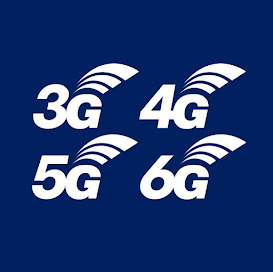 Sometime back I wrote about SMS becoming cheaper in many parts of the world and that can lead to a deluge of SMS SPAM. Last week I read about someone arguing for SMS Ads:
Sometime back I wrote about SMS becoming cheaper in many parts of the world and that can lead to a deluge of SMS SPAM. Last week I read about someone arguing for SMS Ads:The mobile advertising market is growing in size at a prodigious rate, but in absolute terms, is still tiny in value compared to other media such as print, broadcast and online. There is a perception within the advertising industry that the mobile space is a difficult one to address, with limited inventory and reach, compromised display banner ad formats, and a lack of metrics to provide proof of a return on investment.
To a certain extent, these criticisms are valid, with some factions of the mobile marketing industry having something of a blinkered ‘WAP banner ad’ mentality. But there are alternative formats that address many of the current needs of the advertising world: chief amongst these has been known to users, providers and advertisers alike for decades – the SMS text message.By injecting targeted adverts into existing SMS service messages (or indeed using the whole SMS for a marketing message) and, crucially, providing an interaction mechanism that is measurable on a per-advert, per-user level, SMS advertising addresses the key needs of advertisers and marketers, namely:
- High volumes of inventory – there are billions of service SMSs sent globally each day.
- Reach – the ability to receive and interact with SMS is ubiquitous: every mobile phone has this ability and hence all users can be reached with campaigns.
- Targeted – such a personal medium as the mobile phone allows for highly contextualised advert delivery based on a wide range of parameters, including the content of the service message, location, time of day and other user information.
- Measurable – the ability to determine exactly how many individual users click to interact with the advert (either click-to-call or click-to-mobile site) provides not only a measurable ROI for the campaign, but the opportunity to inform future ad delivery on an individual basis.
The preconception of SMS advertising is of mobile spam: sending the same message to (an often unqualified) list of mobile numbers. True SMS advertising, and where the most value lies for all involved, is in delivering the most appropriate contextualised advert for a (known) user at a given time, based upon as wide a range of parameters as possible, and providing measurement of interaction rates for the campaigns. In this scenario, SMS represents premium advertising inventory, achieving effective CPM rates in excess of £100 – many times that of other mobile display advertising formats – either on a straightforward volume or a cost-per-click basis.
The winning combination of personalised delivery and measurement of individual consumer interaction with adverts offers the prospect of extending the advertiser’s engagement with the consumer through the cycle of attracting, engaging and retaining them as a customer. By linking individual consumer’s responses with customer service or CRM systems, a richer picture of their preferences can be built to drive increased relevance of future adverts and improve loyalty. The direct interaction mechanism offered by a ‘click-to-action’ mechanic in an SMS offers an easy to use customer acquisition method – a consumer can be connected directly to an existing call centre or further product information, without being required to remember or re-enter any details.
There are different approaches in case of SMS based advertisement. A simple approach is to offer customised discounts on certain products where the user can take a SMS voucher and get a discount on certain products. Another approach becoming popular in India and China is to get paid for receiving SMS Ads. In Japan and Korea, users can receive QR codes that they can take to a shop and obtain discounts.
A similar but slightly varying approach is Bluetooth based proximity marketing. Here the user is sent ads over Bluetooth when he/she is in a certain area and a Bluetooth ads server is available to pump ads. In this scenario its is simple choice for the user because he can decline the ad. Also Bluetooth can be switched off thereby avoiding nuisance of receiving ads over Bluetooth.
So some people may be interested in SMS ads and discounts and maybe somepeople may become Millionaires by receiving lots of SMS's but for majority of the people this may be more of an annoyance rather than the promised boon. In case of Emails you have a filter where SPAM can be filtered out but maybe difficult for SMS. Ad based SPAM maybe something that can kill off SMS as people may find a way to switch off SMS on their phones to avoid unnecessary interruptions and text messages.
Already in different partss of the world, the legislators are acting against SMS SPAM. There is already an SMS SPAM Act in Australia for long time. In USA the Senators want to ban the SMS Spam. I am not sure where EU and UK stand on this issue. Hopefully this is one issue where everyone will act together and hopefully wont be much of a problem in future.


1 comment:
A student awarded a PhD in text messaging has found many people do not abbreviate, but do use unnecessary words - and even use SMS to regale recipients about finding a pen lid.
Read here.
Post a Comment